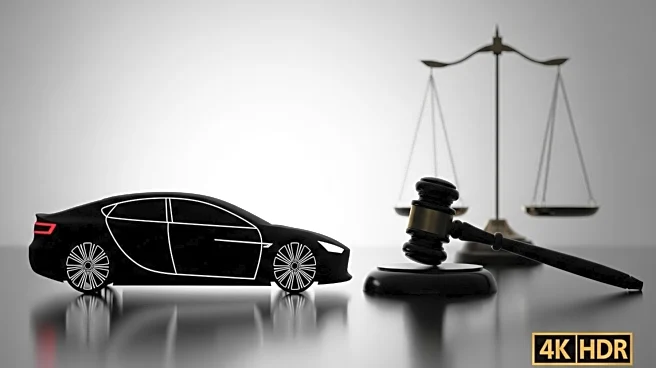What is the story about?
What's Happening?
Tesla has filed a motion in Miami federal court to overturn a $243 million jury award related to a fatal crash involving its Autopilot technology. The company argues that the jury was misled by the plaintiff's lawyers, who allegedly introduced prejudicial evidence about Elon Musk during the trial. The case centers around a 22-year-old student who died after being struck by a Tesla vehicle equipped with Autopilot features. The jury found the driver primarily responsible but also held Tesla accountable due to alleged technology failures. Tesla contends that the verdict could negatively impact innovation and road safety by deterring manufacturers from introducing new safety features.
Why It's Important?
The outcome of this case could have significant implications for the automotive industry, particularly for companies developing autonomous driving technologies. If the verdict stands, it may set a precedent for holding manufacturers liable for accidents involving self-driving features, even when driver error is involved. This could lead to increased legal risks and costs for carmakers, potentially slowing the advancement of autonomous vehicle technology. Additionally, the case highlights ongoing concerns about the marketing and reliability of Tesla's Autopilot system, which has faced scrutiny from regulators in both the U.S. and Europe.
What's Next?
Tesla has requested a new trial or a reduction in the award amount. The court's decision on this motion will be closely watched by industry stakeholders. If the award is upheld, it may prompt other manufacturers to reconsider their approach to marketing and deploying autonomous driving technologies. Furthermore, regulatory bodies may intensify their scrutiny of Tesla's Autopilot system and similar technologies, potentially leading to stricter guidelines and oversight.
Beyond the Headlines
The case raises ethical questions about the responsibility of manufacturers in ensuring the safety of autonomous driving technologies. It also underscores the importance of transparent communication about the capabilities and limitations of such systems to prevent over-reliance by drivers. The legal and regulatory outcomes could influence public perception and trust in self-driving technologies, affecting their adoption and integration into everyday transportation.















